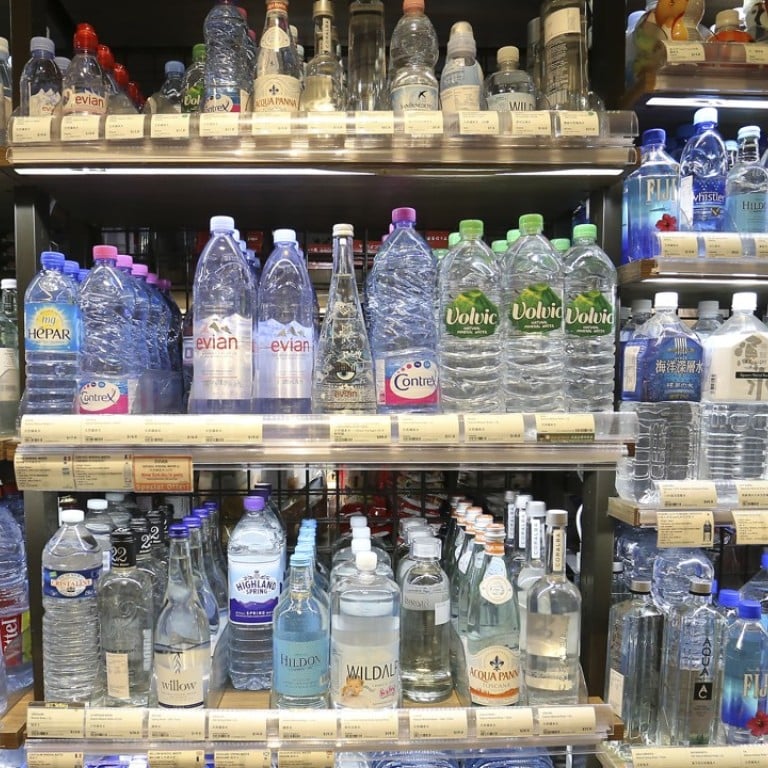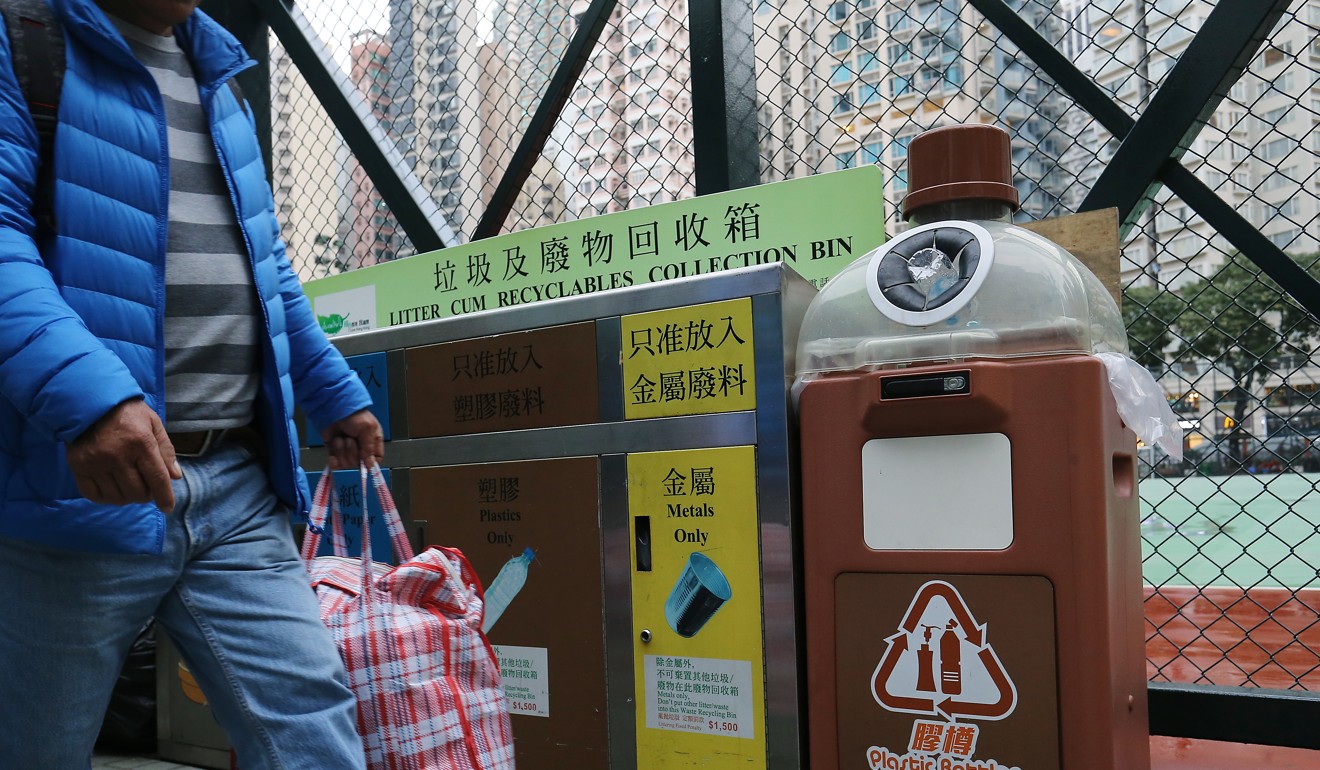
Will recycling only drink bottles and personal care products lead to more waste sent to Hong Kong landfills?
The government says it is more efficient to only recycle certain types of plastic and paper, given Beijing’s upcoming ban on imported waste.
An amended Hong Kong government policy on recycling that targets drink bottles and plastic containers used in personal care products has sparked concerns that other types of household plastics would be discarded and sent to local landfills, adding to the city’s waste.
Authorities across the border are set to stop importing four categories of solid waste from Hong Kong to be processed for recycling. These include plastics from daily usage and unsorted scrap paper.

In Hong Kong, under the new policy, the public is asked to change its recycling behaviour regarding waste paper and waste plastics. According to the department, only three types of paper – cardboard, newspaper and office paper – should be recycled, excluding glossy magazine covers that have been coated with a plastic layer.
For plastic waste, the public should only put two types of plastics in recycling bins – drink containers and personal care products – with these rinsed beforehand.
The department said that because of market constraints and operational considerations, other waste plastics with lower recycling value should not be considered as it would compromise the processing of the whole batch.
Hong Kong is misusing its public recycling bins, green group says
“If we follow the previous practice of not recycling properly, these three types of waste paper and two types of plastic containers will have to be dumped [during processing] due to improper sorting,” Secretary for the Environment Wong Kam-sing said, adding that it was a global trend to improve the quality of recycling.
The department said the two targeted types of plastics account for about 10 per cent of plastic waste in local landfills, while the three paper types formed about 75 per cent of the city’s collected waste paper.
But Hahn Chu Hon-keung from environmental group The Green Earth expressed concern that the new policy would result in a situation where most domestic plastic waste ends up in landfills instead of being recycled.
“These plastics only account for about 15 per cent of the recyclable plastic waste exported from Hong Kong … If we are only targeting them, there may be an extra 75,000 tonnes of waste dumped into landfills every year,” Chu said.
Hong Kong waste paper firms go on strike as new mainland rules threaten their survival
But the government said other types of waste plastics and paper could still be recycled if the amount was large enough.
Wong said there was a need for more stringent recycling measures “If we are willing to do further sorting, or if there is sufficient quantity for a particular type of waste paper or waste plastics, they can still be recycled and processed into raw materials given the current capabilities of individual recyclers in Hong Kong.”
A department spokeswoman said it was exploring the possibility of using community green stations to collect other types of waste plastics that are clean and in large quantities.
Two in three Hongkongers use plastic disposables for dining, adding to city’s ‘waste crisis’
Chung Shan-shan, a scholar specialising in waste management at Baptist University, warned that the new policy might result in adding hundreds of tonnes more waste daily to landfills.
“The recycling policy may be slightly clearer and more focused … but [any improvements from the plan would still hinge on] consumers’ self-discipline in cleaning the plastic bottles,” she said.
Chung suggested that the government help local recyclers explore whether markets beyond the mainland could handle the city’s waste.

